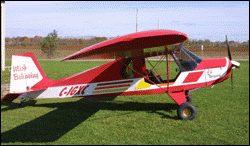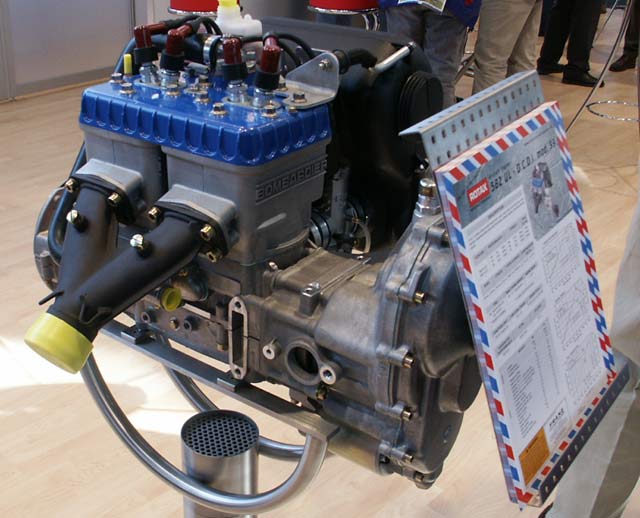|
Lead, which give us higher octane is required for
resisting detonation, is now being replaced by additives, including
"alcohol," in our fuels. For two stroke engines, it is important to avoid
any "alcohol type additives."
The problem with methanol or ethanol, is
that it resists blending with two stroke lubricants. Thus fuel mixed
with oil in a tank do not "blend together." efficently and
effectively. Engines that use oil injection systems are not as prone to
this gas an oil separation since the oil is added at the last possible
instant, as the fuel enters the engine.
My recommendation for fuel in a Rotax two
stroke engine is to use a premium grade unlead fuel of 92 octane. The fuel
should be free of any alcohol and not exceed the 2% oil mixture
requirement.
The following is taken from Rotax Service bulletin UL's 13 94
Using auto fuel in Rotax two cycle aircraft engines.
Fuel quality in regards to the operation of a two cycle engine is becoming ever more important. The basic steps to follow and things to watch for are as follows;
It is essential that the operator scrutinize each fuel batch to determine the fuel's overall suitability.
Always buy fuel from a large supplier who openly displays the current octane ratings.
Make all efforts possible to confirm the fuel your buying is as advertised. Try and get basic technical data on the fuel you are using in regards to; octane ratings, ethanol/methanol blend, oxygenates, seasonal blend crossovers etc..
Your minimum fuel requirement is listed in the current issue of your operators manual for your engine type.
Oxygenates (alcohol additives) are to be avoided, any volumes over five percent cannot be used. Testing for alcohol is the only safe way to be sure your fuel is okay for use in a Rotax engine.
As simple test for doing this is available through authorized distributors of Mogas for aircraft. Contact your local FAA for your nearest Mogas distributor.
The effects of alcohol in your engine are as follows:
The alcohol will attract water, this can, cause your sediment traps to flood, plug filters and restrict fuel flow.
Also, the alcohol competes directly with the lubrication, and depending on your oil's ability to combat such, could cause engine damage.
Alcohol carries water which on shutdown and storage can create corrosion on vital engine parts such as crank, main, and rod bearings as well as pins. Once corrosion has started the bearings will fail.
Seasonal blend crossovers can affect your fuels volatility, if you use a winter blend fuel during hot summer days. This is a common occurrence with people who buy a fuel blend in colder climates in March, but don't use it in the Rotax engine until June. Evaporation temperatures of your fuel must be low
enough to minimize crankcase and combustion chamber deposits as well as spark plug fouling without fear of vapour locking of boiling.
Always make sure you buy your fuel from a high volume user, and avoid fuel which is been storage for long periods of time, especially between seasons.
Loss of octane rating is a common problem on fuel stored incorrectly which could lead directly to engine failure.
|


